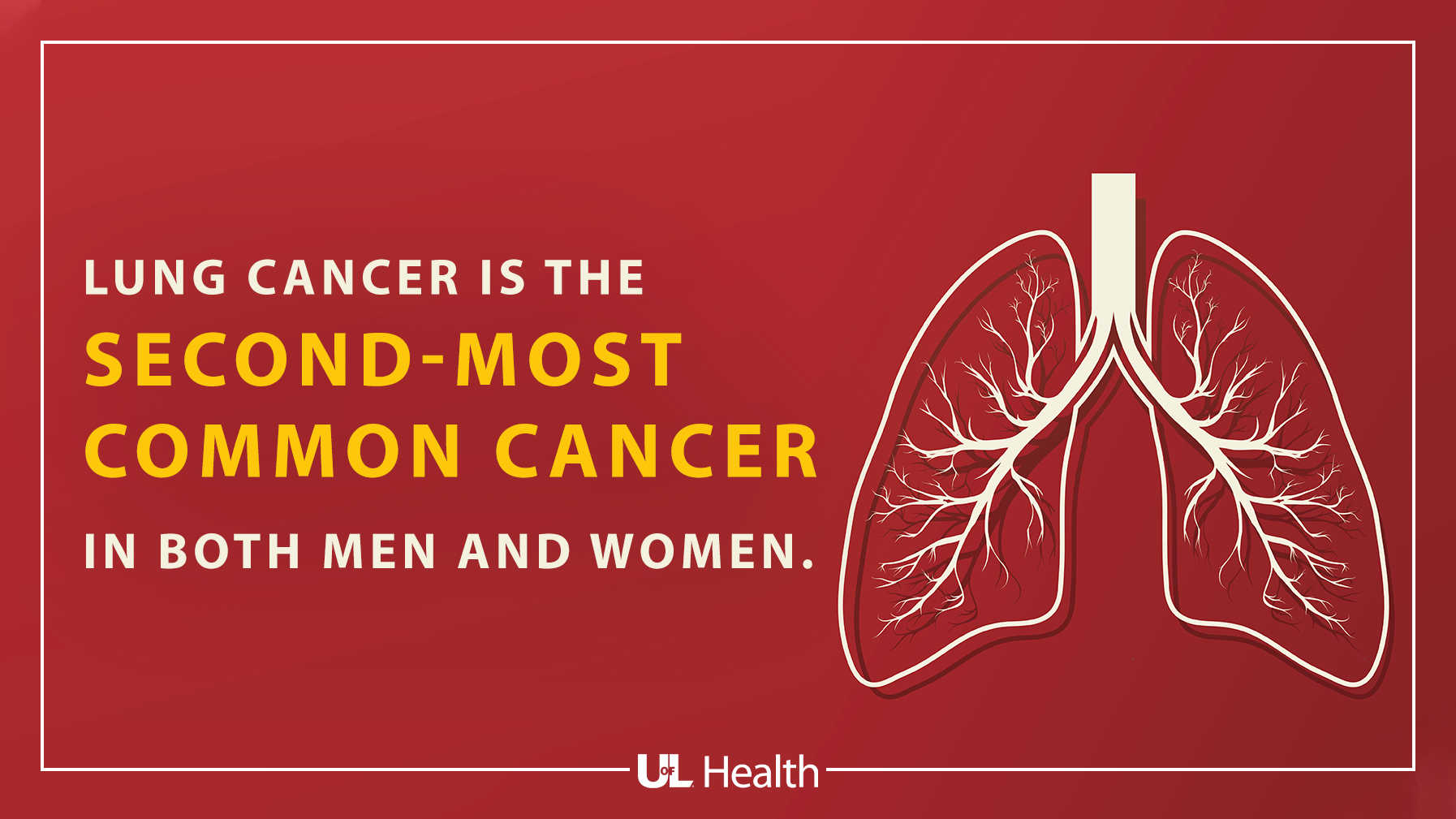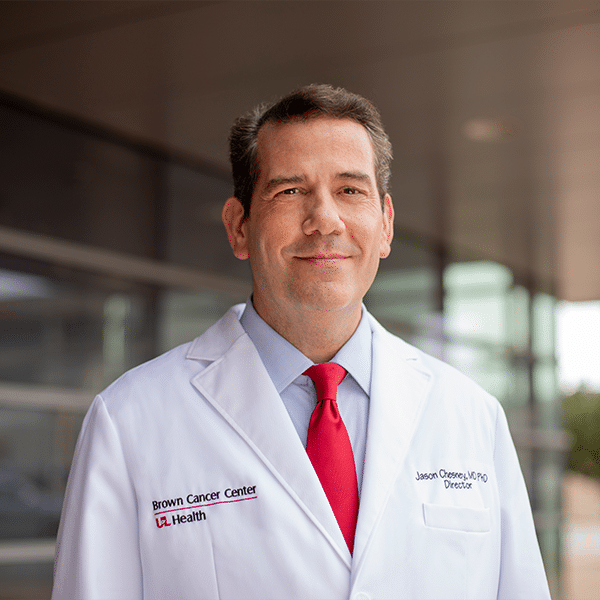
Lung cancer is the leading cause of cancer deaths among men and women. Kentucky, which is traditionally associated with tobacco, consistently ranks as one of the nation’s highest lung cancer deaths.
What can you do?
- Know your risk factors for lung cancer and avoid exposure to the dangerous substances that cause it. Smoking isn’t the only risk factor. It can also include exposure to radon gas, air pollution and secondhand smoke.
- Learn about lung cancer screening and encourage those who qualify to get screened. Did you know only about 1% of those who qualify for lung cancer screening actually get screened? Screening can detect lung cancer in earlier stages when it’s more easily treatable. To learn more, visit UofLHealth.org or call the UofL Health Lung Cancer Screening Program at 502-210-4497.
- If you’ve been diagnosed with lung cancer, seek an oncology care team with multiple specialists focusing specifically on lung cancer. UofL Health – Brown Cancer Center Multidisciplinary Lung Cancer Team offers the most advanced diagnostic care, including the Monarch Platform for robotic bronchoscopy detecting cancer at its earliest stages. Brown Cancer Center provides the latest clinical trials. Our highly-skilled specialists combine the most effective therapies using a team-focused, multidisciplinary approach to ensure you are receiving the best treatments available. To schedule an appointment, call 502-562-HOPE (4673).









